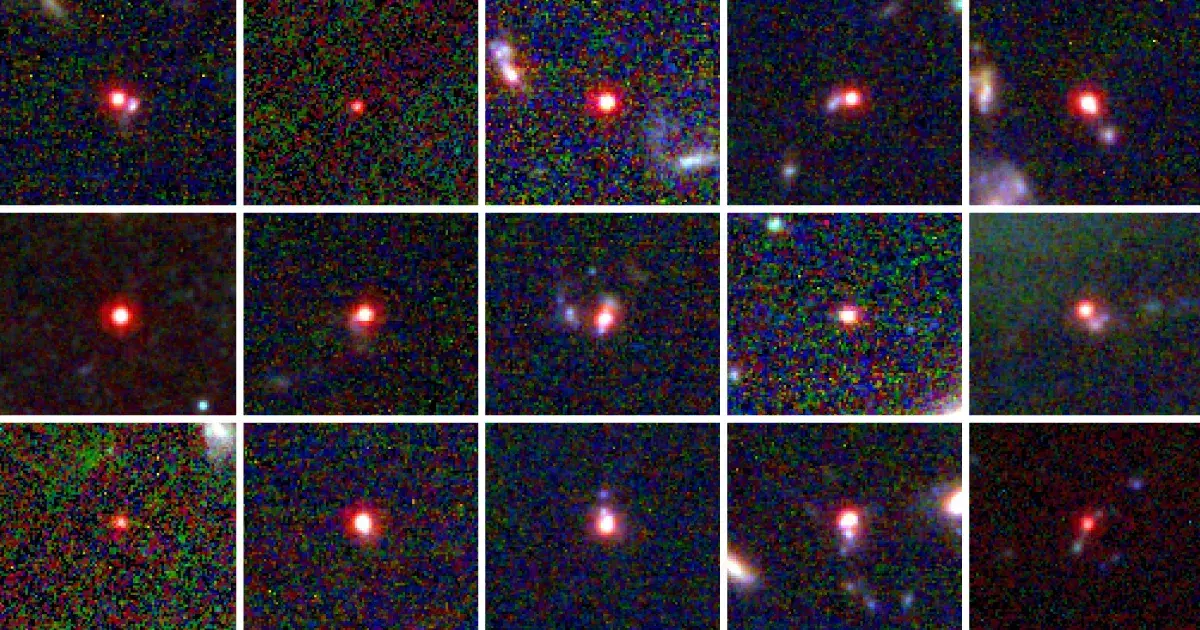Observations from the James Webb Space Telescope have revealed a surprising number of young galaxies containing massive black holes at their centers, churning up the gas within only a few hundred million years after the Big Bang. Spectroscopic data indicates that these “hidden little monsters” harbor black holes weighing millions of solar masses. The abundance of growing baby black holes challenges theories about how supermassive black holes could have formed so early in the universe’s history. While astrophysicists expected JWST to find some early black holes, the sheer number uncovered has shocked astronomers and could rewrite models of galaxy and black hole formation. If confirmed, these observations suggest that massive black holes may have grown much faster than previously believed possible in the infant universe.



I do believe there is a strong link to be understood between what is observed in this post and what was posted :
X-Ray echo suggests our galaxy was “active” (quasar-like) just 200 years ago - Nature
by @CanadaPlus one month ago.
Thanks for this (X-Ray echo) post and for the last comment you made here in the other thread, about Penroses’ current work.
So I will read through some of this and try to come back with something worthwhile to say.
Update : I read some more and most of that is just out of my reach. The only paragraph I kind of understand somewhat is this :
…and now I need some rest.
With all sincerity and seriousness …
… kay
What’s the implication then of Penrose’s idea? That no matter the trajectory of a universe some sort of “big bang” singularity is inevitable, or at least is so for many more trajectories than previously thought.
I read through these and try to understand them but mostly I don’t like those theories, because (in part) more and more there are disparities between them and observations.
So I came up with some ideas myself, one of which I wrote in here :
“New physical cosmological model : is it coherent ?”
But it may take a few years or a few thousand before we have a good cosmology.